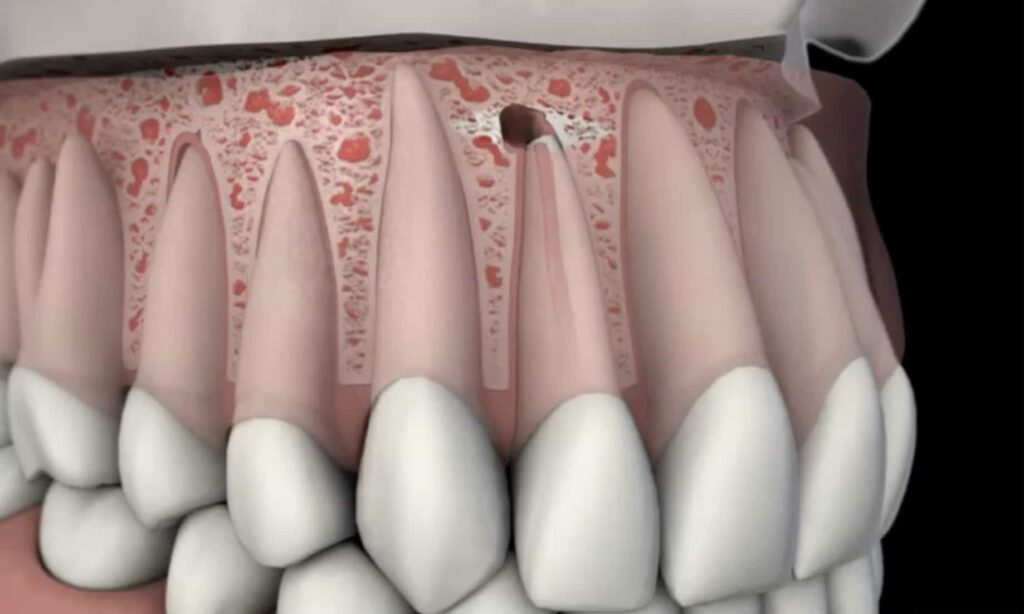Why would I need Endodontic Surgery?

Generally, a root canal is all that is needed to save teeth with injured pulp from extraction. Occasionally, this non-surgical procedure will not be sufficient to heal the tooth and your endodontist will recommend surgery. Endodontic surgery can be used to locate fractures or hidden canals that do not appear on x-rays but still manifest pain in the tooth. Damaged root surfaces or the surrounding bone may also be treated with this procedure. The most common surgery used to save damaged teeth is an apicoectomy or root-end resection.
What is an Apicoectomy?
An incision is made in the gum tissue to expose the bone and surrounding inflamed tissue. The damaged tissue is removed along with the end of the root tip. A root-end filling is placed to prevent reinfection of the root and the gum is sutured. The bone naturally heals around the root over a period of months restoring full function.
Following the procedure, there may be some discomfort or slight swelling while the incision heals. This is normal for any surgical procedure. To alleviate any discomfort, an appropriate pain medication will be recommended. If you have pain that does not respond to medication, please call our office.
Frequently Asked Questions About Root Canal Surgery
What is the difference between root canal surgery and root canal therapy?
- Root Canal Therapy – With this treatment, our endodontist at Woodside Endodontics will enter the root canal through the crown of the tooth to remove the infected pulp. Sometimes, this non-surgical option is not effective because the infection is located further down in the root of the tooth. If this is the case, the tooth requires root canal surgery.
- Root Canal Surgery – Surgery allows an endodontic specialist to treat an infection that is further down in the root of the tooth. This is possible because in root canal surgery the specialists enter the root canal through the gum tissue. Both are important and effective endodontic treatments to help save patients’ natural teeth.
When is root canal surgery recommended?
Whenever possible, an endodontist will try to perform typical root canal therapy. However, we recommend root canal surgery when root canal therapy is not possible. The main reason root canal therapy is often not possible is because the infection is located in the furthest tip of the tooth’s root. This leads to inflammation of the tissues or damage of the surrounding bone. Root canal surgery will be necessary to treat the infection at the tip of the root, as opposed to entering through the crown of the tooth with root canal therapy. If you have a tooth infection, your specialist at Woodside Endodontics will talk you through the options and course of treatment to get you back to full health and comfort.
How is the root canal surgery performed?
If root canal surgery is the recommended option, your endodontist will walk you through the procedure so you can be confident and comfortable with the treatment before you start.
On the day of your appointment, we administer proper anesthesia to the tooth and surrounding tissues so that you feel comfortable while the doctor performs the minor surgery on the gingiva. A very small incision is made at the base of the tooth, and the infected tissue is removed. Entering via the gums through root canal surgery allows the endodontist to remove the infected tip of the tooth’s root. This root canal treatment may take one appointment, and they typically last about 60 minutes along with an additional follow-up visit.
How painful is root canal surgery?
Root canal surgery and root canal therapy have a reputation of being painful. However, the patients of Woodside Endodontics often report very little pain. The doctor uses anesthesia to numb the area prior to the microsurgery and gives proper medication to reduce any pain post-procedure. If you’re concerned about your root canal treatment or surgery, talk with your specialist at Woodside Endodontics. Keep in mind, that we are able to adjust medications and ensure that you know exactly what to expect.
How long does it take to heal from root canal surgery?
Most patients are able to return to their everyday activities the next day after root canal surgery. For a few days, the tissue around the treated area will feel sensitive, depending on the severity of the infection. Over the next few months, your bone will gradually heal around the end of the tooth’s root. However, patients generally only experience mild pain post-treatment.
Can root canal surgery be avoided?
Yes and no.
Once you have a root canal infection, it will not go away on its own. It is important to see a specialist as soon as possible if symptoms occur. Early intervention will help prevent the infection from becoming worse. If left untreated, the infection can reach the tooth’s roots or the jaw bone and further complications can occur.
However, the only way to avoid root canal treatment altogether is by not getting an infection in the first place. The best way to prevent infection is to maintain regular dental hygiene. We recommend doing the following daily:
- Brushing
- Flossing
- Using Mouthwash
- In addition, be sure to visit your dentist for regular cleanings.
If you have any questions or would like to schedule a consultation visit our Contact Page to submit a form or call our office at (650) 369-2555






